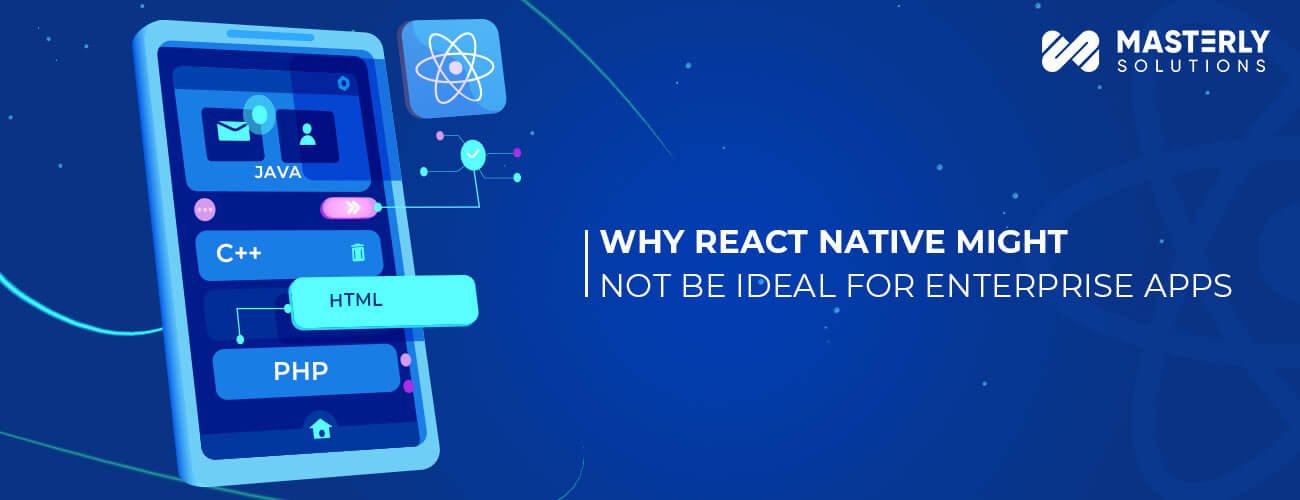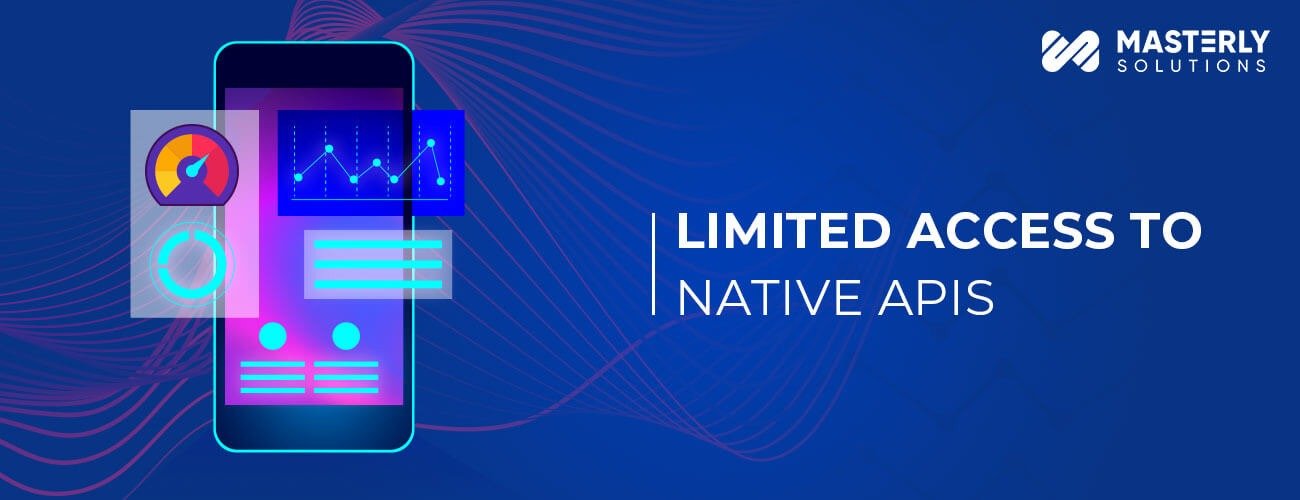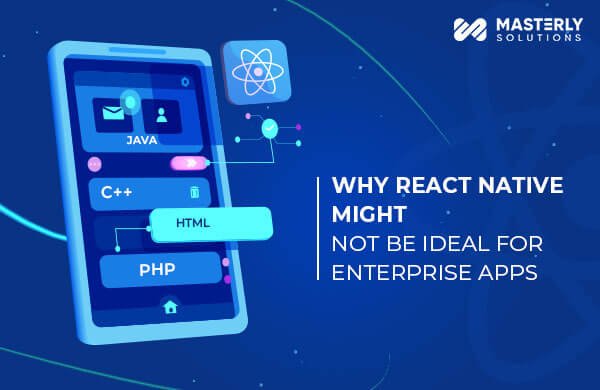
React Native, with its write-once-run-anywhere promise, has gained immense popularity among developers. However, when it comes to enterprise-level applications, there are several crucial factors to consider. In this blog post, we’ll delve into the limitations of React Native for enterprise app development.
Performance Limitations:

Enterprise applications often demand high performance. React Native, though efficient, might not match the raw processing power and smooth animations offered by native iOS apps. In scenarios where every millisecond counts, it’s performance might not meet enterprise expectations.
Limited Access to Native APIs:

React Native relies on native modules for device-specific functionalities. Yet, there are cases where it lacks direct access to certain native APIs. For an enterprise app requiring intricate device interactions, these limitations could become bottlenecks in functionality and user experience.
Security Concerns:

Enterprise apps typically handle sensitive data. It’s reliance on third-party modules and libraries might pose security risks. Ensuring robust data encryption and secure user authentication could be more challenging, potentially making native development a safer choice.
Maintenance Challenges:

Enterprise apps have a longer lifecycle and often need updates and bug fixes. React-Native apps might face challenges during updates, especially when platform-specific changes occur. Maintaining consistent performance across various versions and platforms can be arduous and time-consuming.
Lack of Customization:

Enterprise applications thrive on unique, customized user experiences. It provides a middle ground, but intricate and highly specific UI/UX requirements might be challenging to achieve. For enterprises needing tailor-made interfaces, native development allows for finer control and customization.
Resource Availability and Expertise:

Finding skilled React Native developers, particularly those experienced in enterprise-level applications, can be daunting. The broader talent pool of native iOS developers offers enterprises more options. Hiring skilled developers with a deep understanding of enterprise needs can be a significant challenge.
Conclusion:
While React Native offers rapid development and cross-platform capabilities, enterprises need to weigh the benefits against these limitations. For performance-critical, highly secure, and deeply customized applications, native iOS development might still be the gold standard. Each project is unique; carefully evaluating the requirements will lead to the best choice for a successful enterprise app.
Alternative Solutions:

Consider exploring alternative frameworks like Flutter for cross-platform development, or investing in native iOS development for applications demanding the highest level of performance, security, and customization.
Closing Call to Action:
What are your thoughts on React Native for enterprise apps? Share your experiences and perspectives in the comments below. Let’s continue the conversation!
